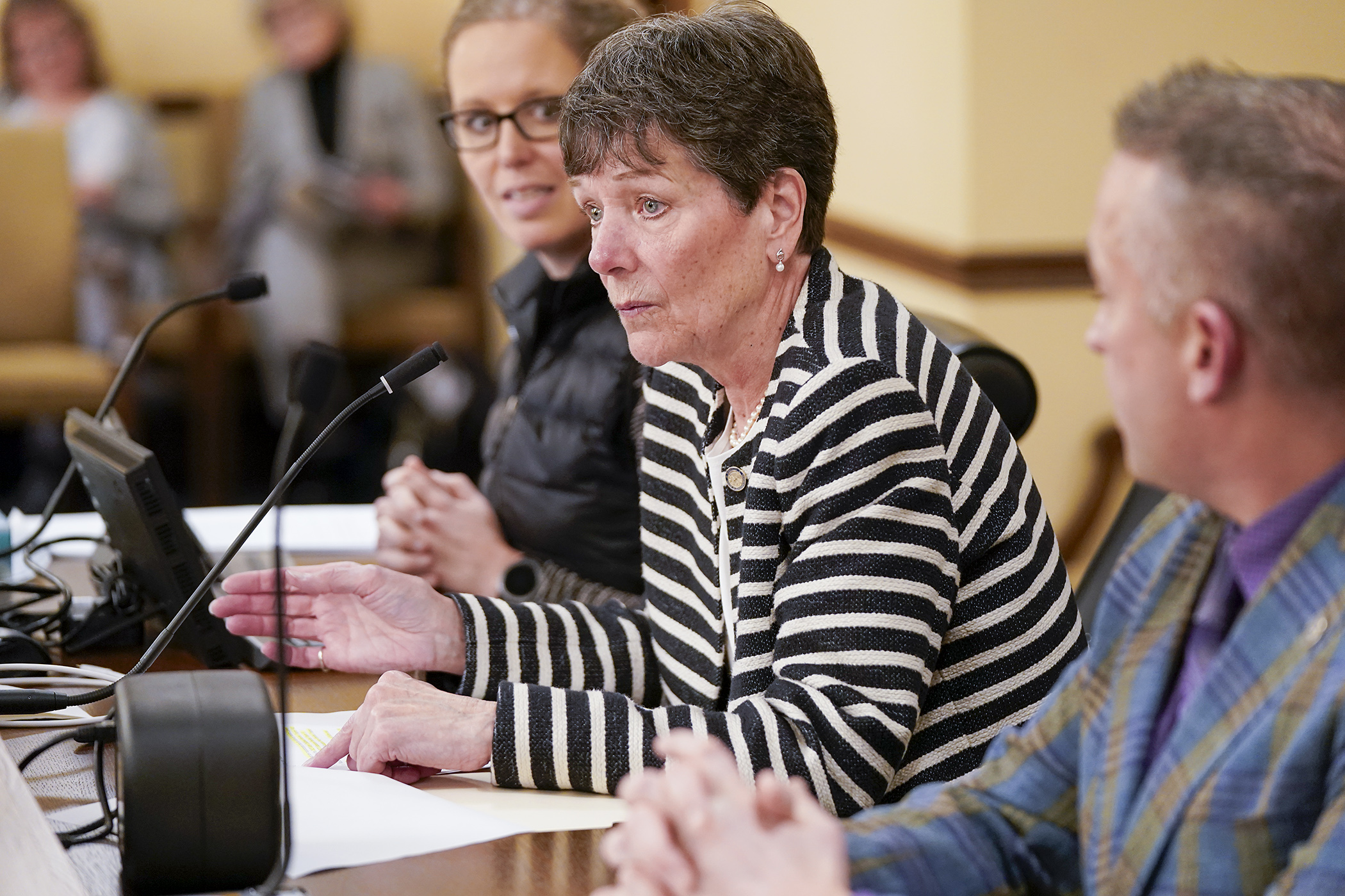Modification would allow Minnesota schools to opt out of READ Act mandates

DISCLAIMER: On Jan. 24, 2025, the Minnesota Supreme Court held that 68 members are necessary to constitute a quorum of the House. This webpage may reflect proceedings that occurred before that decision was issued and are no longer active. See Simon v. Demuth, No. A25-0066 (Minn. Jan. 24, 2025) (consolidated with Hortman et al. v. Demuth et al., No. A25-0068).
A long list of Minnesota public school officials lined up Wednesday to ask the House Education Policy Committee for help, saying Minnesota schools are being crushed under the weight of state mandates.
“The READ Act alone, I feel like we are rushing to get this through,” said Michael Thomas, superintendent of Prior Lake-Savage Area Schools. “We fully understand the intent and spirit of the READ Act, but we need to do it with fidelity.”
Enacted in 2023, the Reading to Ensure Academic Development Act aims “to have every Minnesota child reading at or above grade level every year, beginning in kindergarten, and to support multilingual learner and students receiving special education services in achieving their individualized reading goals in order to meet grade level proficiency.”
Rep. Peggy Bennett (R-Albert Lea), the committee chair, sponsors HF6 to let school districts opt out of school mandates passed during the 2023 and 2024 legislative sessions. The bill was laid over for possible inclusion in another bill.
Slowing down or pausing some of the mandates would give schools a reprieve they need, Thomas said. “The revenues we are getting are flat at best, if not declining. But our expenses, the cost of doing business is excessive.”
Thomas said many of the recent legislative mandates placed on schools are unfunded or underfunded and are forcing schools to make budget decisions between critical needs for students.
“We have to balance what is good for our students and what is good for our students,” he said. “It’s a real fine balance to be able to meet those mandates along with our general daily educational needs for our kids.”
The bill would also allow school districts the flexibility to transfer funds from any unencumbered account to an operating account with school board approval from 2026 to 2029.
“I heard a lot of testimony of, ‘Hey, we have this money in this pocket, and we need it here but we can’t do that.’ We need to provide flexibility to our schools, to their budget people … to be able to do that,” Bennett said.
Among other changes, the bill would:
- change READ Act policies to be based on the science of reading, as opposed to evidence-based literacy;
- establish and fund an Office of Achievement and Innovation in the Department of Education to assist school districts in researching and implementing practices promoting academic achievement;
- establish a nine-member Innovation Research Zone Advisory Panel to review all innovation zone plans submitted for approval;
- strike the requirement that approved curriculum be culturally and linguistically responsive and reflect diverse populations, and cancel funding for culturally responsive materials;
- establish a school performance report system to compare the performance of schools in proficiency rates on state assessments in reading, math, and science, student attendance and graduation rates; and
- allow a school board to adopt a P-TECH program that prepares students for high-skill jobs of the future in identified growth industries without department approval.
Related Articles
Search Session Daily
Advanced Search OptionsPriority Dailies
Speaker Emerita Melissa Hortman, husband killed in attack
By HPIS Staff House Speaker Emerita Melissa Hortman (DFL-Brooklyn Park) and her husband, Mark, were fatally shot in their home early Saturday morning.
Gov. Tim Walz announced the news dur...
House Speaker Emerita Melissa Hortman (DFL-Brooklyn Park) and her husband, Mark, were fatally shot in their home early Saturday morning.
Gov. Tim Walz announced the news dur...
Lawmakers deliver budget bills to governor's desk in one-day special session
By Mike Cook About that talk of needing all 21 hours left in a legislative day to complete a special session?
House members were more than up to the challenge Monday. Beginning at 10 a.m...
About that talk of needing all 21 hours left in a legislative day to complete a special session?
House members were more than up to the challenge Monday. Beginning at 10 a.m...